WHAT ARE KIDNEY STONES?
Also known as renal calculi, nephrolithiasis or urolithiasis, kidney stones are hardened mineral deposits and salts that form inside the kidneys. Kidney stones form due to a person’s diet and body weight, as well as medical conditions and certain supplements or medications. Often, no cause is identified. They often occur when the urine becomes concentrated with crystal-forming substances.
Kidney stones can be soft, but in some instances, they can be extremely hard. Some stones are smooth and round whereas others can have rough or jagged edges. Kidney stones can vary in size from one or 2 mm up to 5 or 6 cm or more, generally forming in the kidney and can remain there for many years without causing any symptoms or problems. If they drop out of the kidney towards the bladder, they can cause a blockage in the drainage of urine from the kidney. They will travel as far as they can and if they are small enough (less than about 4- 5 mm) they may pop into the bladder spontaneously. This can be painful but at least, you will have saved yourself more pain and an operation. If they are larger, they may get stuck at some point. The blockage causes backpressure up into the kidney which is what causes the pain known as renal colic.
Kidney stones can be composed of many different compounds. The most common is a combination of calcium and oxalate. These types of stones need to be removed as there is no medicine that can dissolve them. The next most common type of stone is made of uric acid and in some circumstances, these can be dissolved.
MEET DR. DAVID ENDE
A specialist Urologist providing consulting and surgical services at St Vincent’s, Norwest, and Blacktown.
Dr Ende’s years of clinical experience together with his commitment to ongoing research and presentations at specialist forums ensures he remains at the forefront of the most advanced technology and treatment modalities available to benefit his patients.
Dr Ende earned his doctorate in Cancer Medicine at Sydney University in 1996. He subsequently completed his urological training in 2000. He specialises in benign and malignant prostate disease, voiding dysfunction in men and women, stone disease/laser surgery, bladder cancers and neo-bladder formation. He performs robotic and laparoscopic surgery for prostate and kidney cancers.
HOW COMMON ARE KIDNEY STONES?
Kidney and upper urinary tract stones are highly prevalent in Australia. Kidney stone disease affects an estimate of 131 persons per 100,000 population. The lifetime prevalence is lso up 10-15% in males, an 8% in females. The lifetime recurrence of the disease is 50%.
Most of the patients afflicted with kidney stones initially consult general practitioners (GP), and are referred to urologists for additional investigations. Not all patients have to be referred to specialists, so it is crucial to identify which patients can be safely managed conservatively.
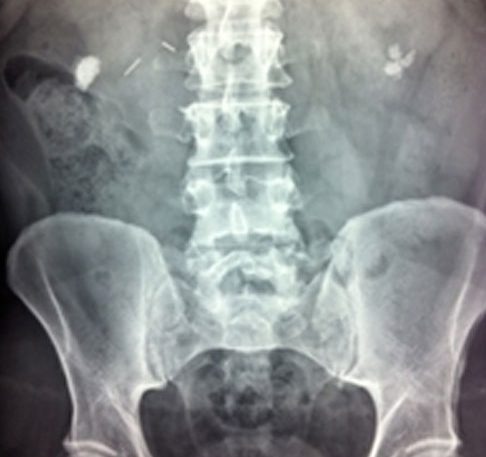
WHAT ARE THE DIFFERENT KINDS OF KIDNEY STONES?
Kidney stones vary depending on the crystals and minerals they are composed of. Below are the different types of kidney stones:
Uric Acid Stones
This type of kidney stone is composed of chemicals from the urine. For this kind of stone to form, it has to have an environment where there’s an increased presence of acid in the urine. To prevent uric acid stones from forming, avoid consuming high-purine foods such as red meat, sardines, anchovies, shellfish, as well as beer and alcoholic beverages.
Calcium Stones
Calcium stones are often made from calcium oxalate, although they are also formed from calcium phosphate or other compounds. People who have this kind of stones typically have a higher concentration of calcium in their urine, a condition called hypercalciuria. Several factors cause this condition: some people either absorb too much calcium from their intestines or bones, or their kidneys are incapable of regulating the amount of calcium they release into their urine. Consuming less oxalate-rich food such as peanuts, chocolate, spinach and potato can lower your risks of developing calcium stones.
Cystine Stones
Cystine stones are extremely hard masses composed of a natural substance called cystine. The stones are produced by a rare disorder called cystinuria, which releases cystine into the urine. Abnormally high amounts of cystine in the urine results in kidney stone formation. Cystine stones are usually larger in size and need to be surgically removed. The disease is inherited and recurrent through a person’s lifetime.
Struvite Stones
Struvite stones or infection stones are the result of urinary tract infections. They are made from magnesium ammonium phosphate. They are created when bacteria enters the body and turn urea in the urine into ammonia. This raises the pH level of the urine, making it less acidic or alkaline and in turn providing an ideal environment for the stones to form. Women are often affected by struvite stones.
KIDNEY STONE SYMPTOMS
Kidney stones usually don’t cause any permanent damage if they’re caught early. It is possible to manage the pain with medication and drinking lots of water to help them pass. However, if the stones become stuck in the urinary tract and cause complications, surgery may be required.
Kidney stones can remain in the kidney without causing any symptoms for many years. They may slowly get bigger but may remain asymptomatic. Stones in the kidney can be associated with bleeding or infection. The main symptom attributed to kidney stones is renal colic that occurs when a kidney stone causes a blockage to the flow of urine between the kidney and bladder.
This pain is usually experienced in the loin or flank and can radiate around the front of the abdomen, down toward the pubic bone. The pain can be severe and unrelenting and can be associated with sweating, nausea and vomiting. If simple analgesia at home is insufficient, you will need to attend a local hospital where stronger pain relief can be administered after the diagnosis is made.
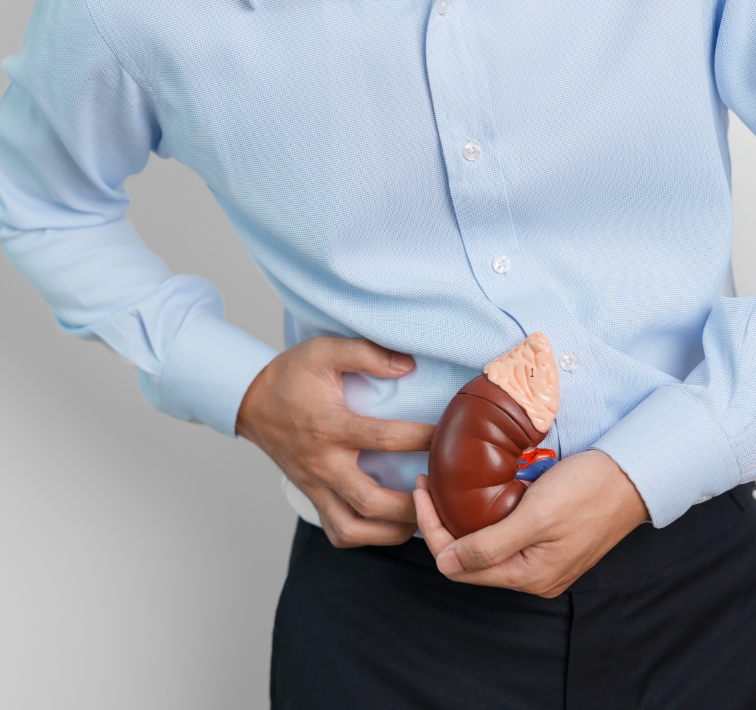
Please call us to arrange a consultation
WHEN TO SEE A DOCTOR
See a doctor for any signs or symptoms that bother you. You should also seek swift medical attention if you experience any of the following:
- Severe pain preventing you from sitting still or finding a comfortable position
- Pain presenting with fever and chills, or nausea and vomiting
- Difficulty urinating or blood in your urine
KIDNEY STONE INVESTIGATIONS
Diagnosing a kidney stone begins with a patient’s medical history, physical exam, and radiology tests. The attending doctor would want to know the measurement, size and position of the kidney stones.
If you are suspected of having kidney stone pain, you will need to have a high-resolution CT scan of your abdomen. This will cover both of your kidneys as well as the ureters (tubes that drain urine down toward the bladder) and the bladder. You do not need to have an injection contrast for this scan. Any stone anywhere in the urinary tract will be identified with this scan. Other types of imaging including ultrasounds and x-rays can sometimes be used to diagnose kidney stones but these are usually not as accurate. You will also need a urine test to check for blood in the urine as well as the possible presence of infection.
You may also be advised to undergo an x-ray called KUB (kidney, ureter, bladder) x-ray. Surgeons often want to know if the stone can be treated with shock wave lithotripsy (SWL). The test may also be used to monitor the stone before and after treatment. However, the CT scan is often the diagnostic test of choice for most doctors. In some cases, an intravenous pyelogram or IVP will be done.
The next step is for your doctor to decide how to treat the kidney stones. You will need a urine test to check for blood in the urine as well as the possible presence of infection. Blood tests may also be required to assess your overall health and specifically, your kidney function. Your doctor will consider the size and location of the stone for your treatment plan.
Later on, following your procedure, your doctor will have the stone analyzed to identify its cause. Your blood will be examined for calcium and uric acid. Your urine may also be collected to test for calcium and uric acid content as well as several other components.
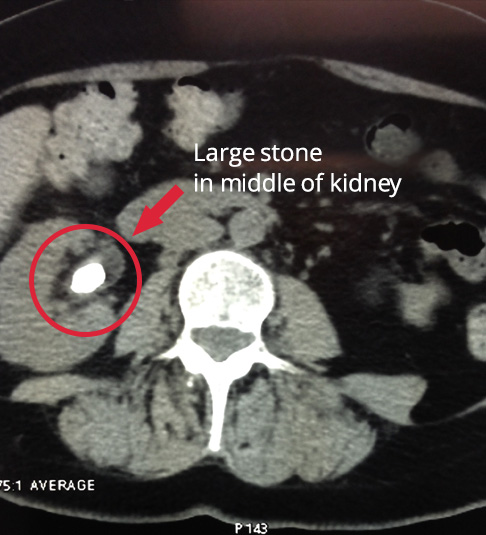
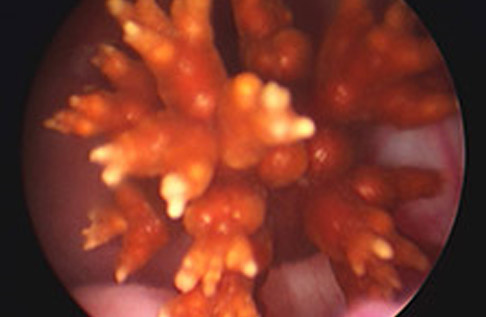
PREVENTATIVE MEASURES FOR KIDNEY STONES
The easiest way to reduce your risk forming stones is to ensure a good fluid intake. This makes you pass more urine more frequently but it will keep your urine dilute and reduce the risk of stones from forming. You can tell you’re drinking enough fluid if your urine is a light pale yellow colour.
In general terms, you should have a healthy balanced diet consuming everything in moderation. There are specific foods that can be limited such as those containing oxalate. You should limit the amount of salt you consume.
Citrate, in the form of lemon juice, is an inhibitor of stone formation in the urine. Squeezing lemons into a jug of water and having a glass or two every day adds to your fluid intake as well.
Specific blood and urine tests can be utilised to measure things such as the calcium in your blood as well as the salt, calcium and oxalate levels in your urine. If these, or other metabolites, are in the abnormal range, you may need to modify your diet or take medication.
KIDNEY STONE TREATMENT OPTIONS
If your pain can be controlled with relatively simple analgesia, and if the stone is small enough (less than 5 mm or so), you may be able to see whether you can pass the stone out on your own. Sometimes a medication can be used to help the stone come out. If however, you have more severe pain, you may well need to be admitted to hospital for strong pain relief and a procedure to look with a telescope into the bladder and up towards a kidney to destroy the stone with laser and pull out any fragments.
A very small stone in the kidney can be monitored as it would likely pass all the way into the bladder without causing problems. We do however need to monitor it regularly with a scan every year or so to check on its size.
If you have a reasonable sized stone in your kidney, you may wish to have this treated even though it may not be causing symptoms. It would be sensible to treat such a stone to avoid the possibility of untimely severe complications from the stone. Stones in the kidney can also be treated using a telescope and laser but there may also be the option to use external shock waves focused on the stone to break it into smaller pieces that you can pass much more easily without pain.
URETEROSCOPY & LASER
Stones stuck between the kidney and bladder can be treated with a laser to turn them into dust.
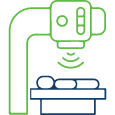
LITHOTRIPSY
Some stones in the kidney can be treated with shock waves to fragment them which is non-invasive.
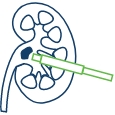
PERCUTANEOUS TREATMENTS
Large kidney stones sometimes require a telescope to be passed directly into the kidney through the skin to allow adequate destruction of the stone in a single treatment.
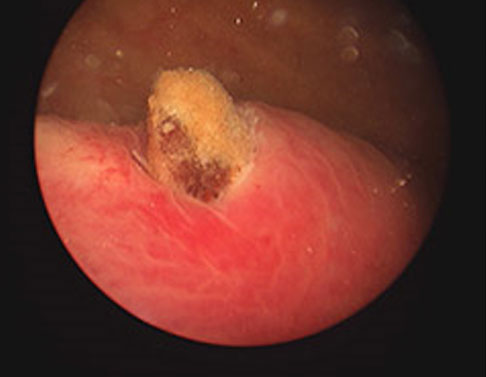
KIDNEY STONE CAUSES
The most common cause of a kidney stone is probably insufficient fluid intake. This allows tiny crystals to form in the urine which then gradually become larger. Certain foods can be implicated in the formation of kidney stones such as those containing oxalates.
Foods high in oxalate include spinach, soy products, almonds and raspberries. A diet high in sodium/salt can also predispose to stone formation. It may be counterintuitive, but you should not restrict your calcium intake as this can cause an imbalance between calcium and oxalate and potentially allow more stones to form.
Please call us to arrange a consultation
KIDNEY STONE RELATED BLOGS

Should I Treat My Kidney stones?
Many patients are found to have incidental stones in their kidneys that have never caused problems and such patients may never have known that they



Is Blood In My Urine Serious
Many patients see their urologist because they have either seen blood in their urine or have been told they have microscopic levels of blood in
